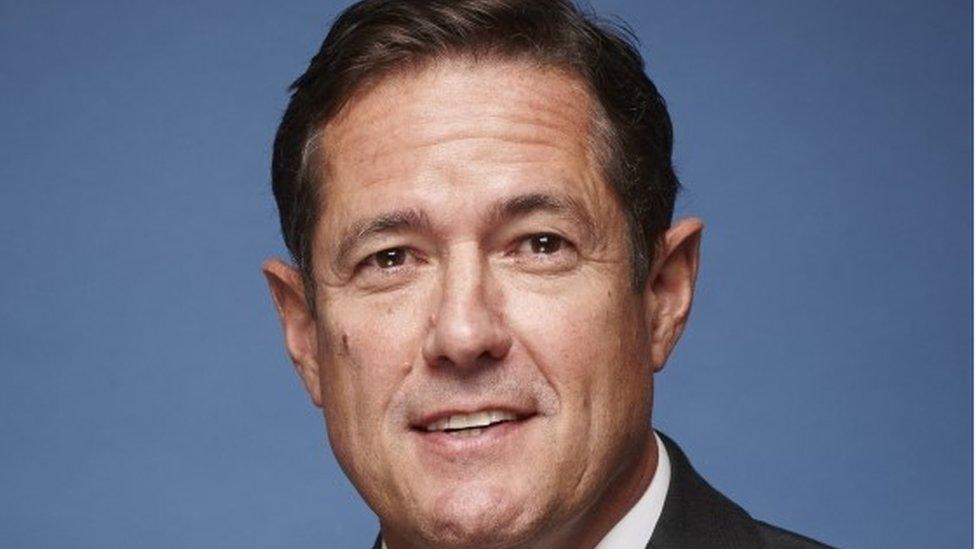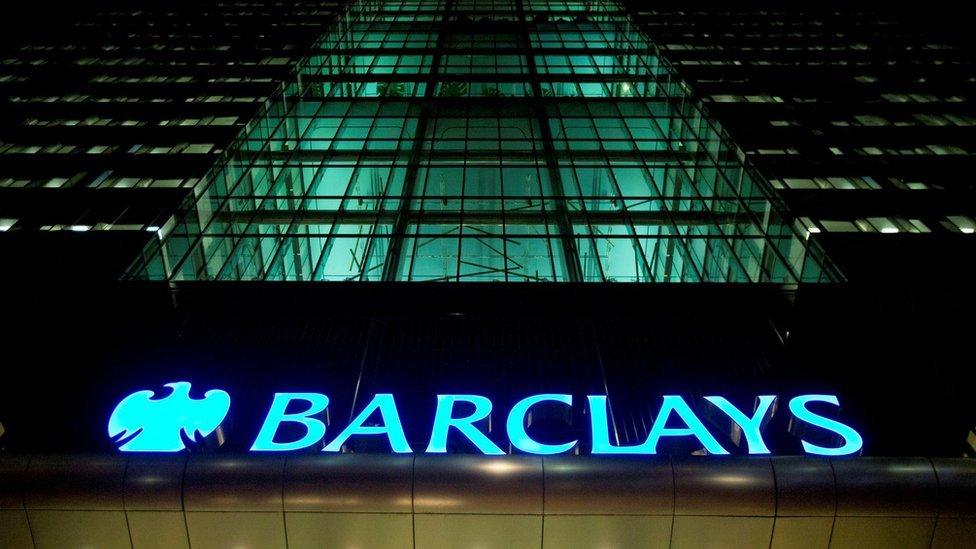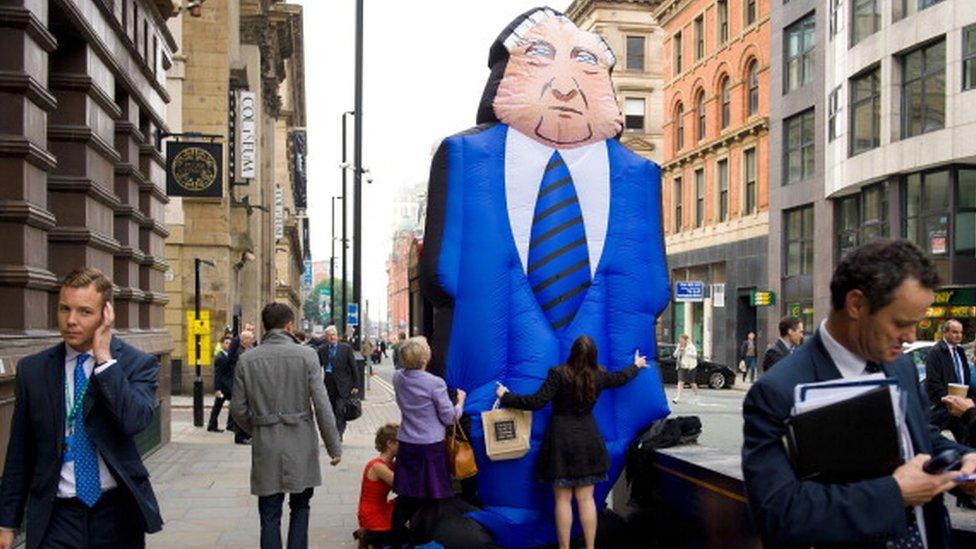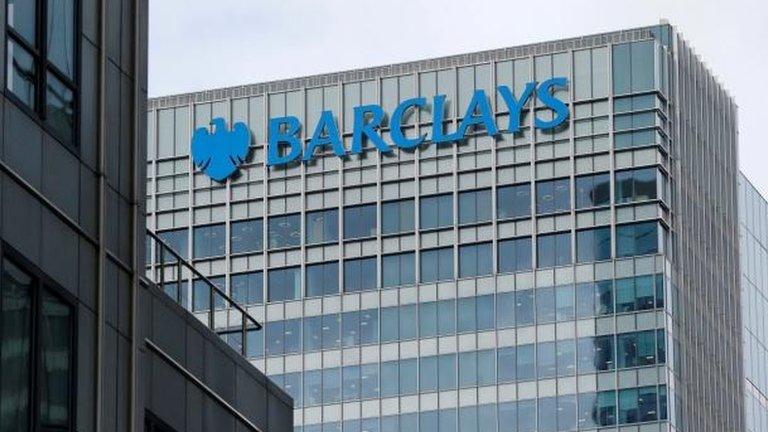Barclays boss sees off shareholder rebellion
- Published

Jes Staley has apologised for his actions
The Barclays chief executive has been re-elected to the board after a shareholders rebellion evaporated.
Jes Staley was facing investors for the first time since it emerged he had attempted to find out the identity of a whistleblower at the bank.
Despite earlier threats of a backlash, just 2.4% of votes cast at the bank's annual meeting were against the move. However, abstentions totalled 13.8%.
Barclays' executive pay policies were also approved by a large majority.
Institutional Shareholder Services (ISS), an influential shareholder advisory group, had told investors not to vote for Mr Staley's re-election to the board, citing concerns over "his personal involvement and accountability" in the controversy.
"Given his personal involvement and accountability in this matter, and given the importance of his role as group CEO, an abstention on his re-election is considered appropriate," it said.
Barclays shares closed 1.8% higher at 209p, shortly before it emerged that the bank will pay more than $97m to settle civil charges in the US for overcharging clients at Barclays Capital's asset management business.
Mr Staley apologised at the meeting for his conduct.
'Red light'
"I made a mistake in becoming involved in an issue which I should have left to the business to deal with," he said.
Barclays chairman Sir John McFarlane told shareholders Mr Staley's actions were "a genuine mistake" and that ousting him would have been unfair.
"He thought he had a green light, he went through the light, and actually it was red. The action for going through a red light is not usually that you lose your licence."
However, Mr Staley is still set to have his pay package docked over the affair, possibly by as much as £1.3m, or all of his annual bonus.
More than 97% of shareholders who cast votes also approved Barclays' pay plans for top executives, despite earlier objections from some shareholders.
Corporate governance body Pirc, which advises many of the largest institutional investors, had advised investors to vote against the bank's remuneration report.
It said Mr Staley's pay last year was 49 times higher than that of the average Barclays' employee and therefore "inappropriate".

Mr Staley also said on Wednesday that he did not see a need to shift jobs or significant operations out of the UK as a result of the vote last June to leave the EU, but if the bank needed to build up its operation within the EU he said: "We can do so and we will".
Chairman John McFarlane added: "We... need to establish an enhanced presence inside the EU to handle our European activities within the borders of the EU should this be required as a result of the Brexit negotiations."
Since the financial crisis, the bank has been restructuring, and shedding assets.
Mr McFarlane said: "The bank is now smaller and more focussed, and by the time we sell down our stake in Barclays Africa we will have exited nearly 30 countries.
"As a consequence of this and other initiatives the group balance sheet has almost halved from over £2trn in 2008 to £1.2trn at the end of March this year and will fall further this year."
Whistleblowing claims
The controversy surrounding Mr Staley dates back to June 2016, when Barclays' board members and another senior executive received anonymous whistleblowing letters.
These raised concerns of a personal nature about a senior employee who had been recruited by Barclays earlier that year, as well as about Mr Staley's role in dealing with those issues at a previous employer.
Mr Staley subsequently asked Barclays' internal investigation team to try to identify the author of the letters, which he felt had made unfair personal attacks on a colleague.
He later told the Barclays board he had been trying to protect the individual who had experienced personal difficulties, but admitted he got "too personally involved".
The Financial Conduct Authority and the Prudential Regulation Authority are now both investigating the matter.
- Published10 May 2017

- Published10 April 2017

- Published10 April 2017